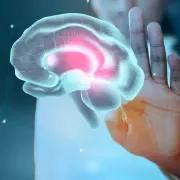Neurological Disorders in Children: Early Detection and Intervention Strategies
In This Article
Neurological Disorders in Children: Early Detection and Intervention Strategies
Jaymala
Updated on June 10, 2024
Medically verified by Dr. Arya
Fact checked by Dr. Pournami

Neurology
10 min read
Neurological disorders are very common in children. This affects their brain, spinal cord, and nerves.
They can be of different types which include delays in development and sensory abnormalities. Living with these disorders can be challenging for the child and his family.
Are you looking for early detection and intervention strategies to address a neurological disorder in your little one? Then, this blog is for you.
In this blog Karetrip provides you with the knowledge of neurological disorder in children, its detection and some coping strategies for this disorder
Various Types of Neurological Disorders in Children
-
Children with Autism spectrum disorder have problems in social interaction, and communication.
-
Children with neurodevelopmental disorder suffer from hyperacidity and weak attention.
-
Children suffering from Cerebral Palsy suffer damage from the brain which controls movement and posture. Kids with CP disorder can have difficulty in maintaining their balance, and motor skills.
-
Some kids have epilepsy disorder. In this they get recurrent seizures, which vary in type and severity.
-
Children suffering from developmental delay suffer a delay in development such as walking, talking, or social interaction.
Symptoms Of Neurological Disorders in Children
-
There is delay in development such as sitting, crawling, walking, or social interaction.
-
There are certain abnormalities in motor function, such as poor coordination, or involuntary movements.
-
There are recurrent seizures involving loss of consciousness or staring spells.
-
There may be behavioural issues such as impulsiveness, hyperactivity, or difficulties with attention.
-
Challenges in speech and language development, including delayed speech, limited vocabulary, or difficulty understanding and expressing language, may indicate communication disorders or ASD.
-
Intellectual disabilities such as limitations in intellectual functioning, learning difficulties, and challenges with problem-solving and abstract thinking may be present in various neurological disorders.
-
Difficulties in social interaction, such as lack of eye contact, are common features of ASD and other neurodevelopmental disorders.
How Can We Detect Neurological Disorders in Children?
-
Regular screenings can identify the delays in the developmental areas. Some Screening tools such as Denver Developmental Screening Test are generally used for this purpose.
-
Parents and caregivers are very important. They can observe the child’s behaviour, and interactions. They can provide valuable insights into any unusual symptom.
-
Child's medical history, and developmental milestones, can provide valuable information for early detection and diagnosis.
-
A complete physical examination can help identify any physical abnormalities, neurological signs, or developmental delays.
How Do You Identify Neurological Disorders in Children?
-
Modified Checklist for Autism in Toddlers is a widely used screening tool for autism spectrum disorder in children aged 16-30 months. It includes many questions.
-
Ages and Stages Questionnaires is a parent-reported screening tool used to assess developmental milestones in children aged 1 month to 5 years. It includes questions of communication, and personal-social skills.
-
Child Behaviour Checklist is a parent-reported questionnaire used to assess emotional and behavioural problems in children aged 1.5 to 18 years.
Different Diagnostic Methods
-
A thorough neurological examination conducted by a pediatrician is usually the first step in diagnosing neurological disorders in children.
-
Genetic testing may be recommended to identify specific genetic mutations, chromosomal abnormalities, or inherited metabolic disorders associated with neurological disorders in children.
-
Blood tests may be conducted to assess various factors, including blood glucose levels, electrolyte levels, inflammatory markers, thyroid function, and metabolic markers, to identify any underlying medical conditions or metabolic disorders that may contribute to neurological symptoms.
Different Approach for Evaluation
-
Pediatricians may refer children to specialists for further evaluation and management.
-
Pediatric neurologists specialize in diagnosing and treating neurological disorders in children. They conduct thorough neurological evaluations, and provide a plan to manage such disorders.
-
Developmental pediatricians assess developmental milestones, cognitive function, social communication skills, and behavioral concerns to identify the concerned neurological issues.
 10 min read
10 min read10 Neurological Benefits of Exercise - Positive Psychology
 10 min read
10 min readChoosing the Right Neurology Hospital: Factors to Consider for Patients and Families
 10 min read
10 min readTop 10 Neurology Hospitals in India
Get a Callback Now
Different Intervention Services
-
Early intervention services provide comprehensive support to infants and toddlers with developmental delays or disabilities.
-
Speech-language therapy focuses on improving communication skills, including speech production, language comprehension, expressive language, and social communication.
-
Occupational therapy sessions include activities such as sensory integration therapy, hand-eye coordination exercises, adaptive equipment training, and environmental modifications to support participation and engagement in meaningful activities.
Physical therapy interventions include exercises, stretching, gait training, and assistive devices to enhance motor function and mobility.
Medical Help
-
Antiepileptic drugs are commonly prescribed to manage seizures in children with epilepsy.
-
Muscle relaxants such as baclofen or dantrolene may be prescribed to reduce muscle spasticity and improve motor function in children with cerebral palsy or other neuromuscular disorders. These medications help to ease muscle stiffness and enhance mobility.
-
Corticosteroid medications, such as prednisone or prednisolone, may be prescribed to manage inflammatory conditions affecting the nervous system.
What Are The Various Therapies Used?
Behavioural therapy techniques, such as applied behaviour analysis, cognitive-behavioural therapy, are usually used for disorders like autism spectrum disorder.
-
Speech-language therapy uses various techniques, such as articulation therapy, language stimulation, and augmentative and alternative communication to improve communication abilities in children with neurological disorders.
-
Occupational therapy includes activities such as sensory integration therapy, and hand-eye coordination exercises.
-
Music therapy utilizes activities such as singing, playing instruments, communication, and motor coordination.
Support From Educational Institutes and Other Services
-
Individualised Education Plans involve goals, modifications, and specialized services according to a child's needs.
-
504 plans provide extended time for tests, or access to assistive technology.
-
Children with neurological disorders may qualify for special education services.
Speech-language therapy services are provided to children with communication disorders.
- Behavioural interventions, such as positive behaviour supports, social skills training, help children with neurological disorders regulate emotions, develop coping skills, and improve social interaction and behaviour in educational settings.
Support from Family and Support Groups
Parent education programs provide information, resources, and support to help parents understand their child's neurological disorders. Workshops, and online resources offer great help in these cases.
Support groups bring together parents, caregivers, and family members of children with neurological disorders to share experiences, exchange information, offer emotional support, and provide practical advice on coping with the challenges of raising a child with special needs
Respite care services provide temporary relief and support to family caregivers of children with neurological disorders, allowing them to take breaks, recharge, and attend to their own needs.
Counselling and therapy services offer emotional support, coping strategies, and mental health interventions to parents, caregivers, and family members of children with neurological disorders.
Online communities, forums, and social networks provide virtual platforms for families of children with neurological disorders to connect, share information, seek advice, and find support from others with similar experiences.
Early detection of neurological disorders in children allows for timely intervention, leading to good results.
Children with neurological disorders benefit from a multidisciplinary approach.
Families and caregivers of children with neurological disorders play an important role in their well-being.
Collaboration among healthcare providers, educators, and therapists, is essential in providing holistic support for children with neurological disorders and their families.
Peer support, educational advocacy, and online communities provide families with the tools and support they need to ensure they receive the care and support they deserve.
Source Links
University of Michigan

